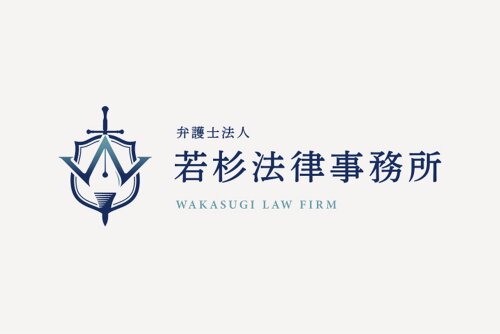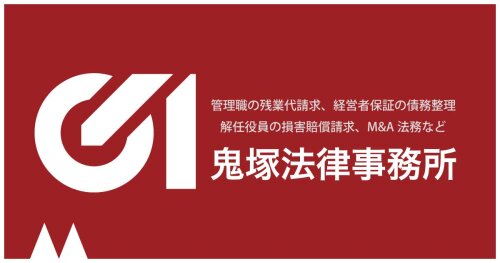Best Debt & Collection Lawyers in Japan
Share your needs with us, get contacted by law firms.
Free. Takes 2 min.
Or refine your search by selecting a city:
List of the best lawyers in Japan
About Debt & Collection Law in Japan
Debt and collection laws in Japan are structured to provide a fair process for both creditors and debtors. The framework is designed to ensure that creditors can collect what is owed to them legally and fairly, while protecting debtors from harassment and undue pressure. The Civil Code and the Act on Special Measures Concerning Civil Court Proceedings for the Recovery of Claims in Litigation dictate the regulatory environment, supporting both voluntary payments and enforced collections under the scrutiny of the Japanese legal system.
Why You May Need a Lawyer
Legal representation can be essential in managing debt and collection issues in Japan for several reasons:
- Understanding Your Rights: Navigating the complexities of local debt collection laws to understand your rights and obligations.
- Dispute Resolution: Helping resolve disputes with creditors or debtors effectively and legally.
- Bankruptcy Proceedings: Guiding you through bankruptcy if debts become unmanageable.
- Debt Restructuring: Assisting in negotiating terms with creditors to restructure debt payments.
- Enforcement of Claims: Ensuring the rightful enforcement of claims if you're a creditor.
Local Laws Overview
In Japan, several key aspects of debt and collection laws are particularly critical:
- Civil Code: This is the primary source detailing contractual obligations, including debt responsibilities.
- Act on Regulations for Debt Collection: Protects consumers from abusive practices by stipulating what is unacceptable in collections.
- Financial Instruments and Exchange Act: Governs trading and the responsibilities of financial stakeholders.
- Enforcement Procedures: Mandate that collection can proceed only through formal legal channels, without harassment.
- Statute of Limitations: Debts typically become unenforceable after five years unless acknowledged afresh by the debtor.
Frequently Asked Questions
What constitutes a legal debt in Japan?
A legal debt arises from a valid contract or obligation, acknowledged by both parties involved, such as a loan agreement or service contract.
How can a creditor legally collect debt in Japan?
Creditors must follow the legal processes specified in the Civil Code and enforce collection through court-sanctioned procedures if necessary.
What should I do if I'm being harassed by a debt collector?
Document all instances of harassment and contact a lawyer. The Act on Regulations for Debt Collection prohibits abusive practices, and offenders can be legally prosecuted.
Can I negotiate my debt repayment plan?
Yes, many creditors are open to negotiation, especially if approached with a reasonable and fair repayment proposal.
What happens if I cannot repay my debts?
If debts become unmanageable, legal options like restructuring or bankruptcy can provide relief, though it's advisable to consult a lawyer first.
Is there a statute of limitations on debt collection in Japan?
Yes, the standard limitation period is five years from when the debtor acknowledges the debt unless a different period is stipulated by law.
Can I be forced to declare bankruptcy?
Bankruptcy is usually voluntary, but creditors can file a motion in court if they can prove that the debtor is insolvent.
Am I still liable for a debt if I return to the country after leaving it unpaid?
Yes, unless the statute of limitations has expired or an agreement was reached that absolves the debt.
Can my wages be garnished for unpaid debts?
In some cases, after a court ruling, creditors can garnish a portion of your wages to recover debts.
What is the role of a lawyer in debt-related court proceedings?
Lawyers represent clients in court, provide valuable advice on legal rights and obligations, and can negotiate settlements or restructuring plans.
Additional Resources
Several resources can provide further support:
- Japan Legal Support Center (Houterasu): Offers legal aid and resources on debt-related issues.
- National Consumer Affairs Center of Japan: Provides guidance and information on consumer rights concerning debt collection.
- Local Bar Associations: Can recommend lawyers specializing in debt and collection laws.
- Bankruptcy Trustee Association: Offers information and support related to bankruptcy procedures.
Next Steps
If you require legal assistance with debt and collection issues, consider these steps:
- Assess Your Situation: Clearly define your current financial obligations and understand your rights.
- Consult a Lawyer: Reach out to a legal expert with specialization in Japanese debt and collection law.
- Prepare Necessary Documentation: Gather contracts, correspondence, and any other relevant documents.
- Explore Legal Options: Consider solutions such as negotiation, restructuring, or legal proceedings with your lawyer.
- Follow Official Channels: If action is required, ensure all procedures are conducted through the appropriate legal and court mechanisms.
Lawzana helps you find the best lawyers and law firms in Japan through a curated and pre-screened list of qualified legal professionals. Our platform offers rankings and detailed profiles of attorneys and law firms, allowing you to compare based on practice areas, including Debt & Collection, experience, and client feedback.
Each profile includes a description of the firm's areas of practice, client reviews, team members and partners, year of establishment, spoken languages, office locations, contact information, social media presence, and any published articles or resources. Most firms on our platform speak English and are experienced in both local and international legal matters.
Get a quote from top-rated law firms in Japan — quickly, securely, and without unnecessary hassle.
Disclaimer:
The information provided on this page is for general informational purposes only and does not constitute legal advice. While we strive to ensure the accuracy and relevance of the content, legal information may change over time, and interpretations of the law can vary. You should always consult with a qualified legal professional for advice specific to your situation.
We disclaim all liability for actions taken or not taken based on the content of this page. If you believe any information is incorrect or outdated, please contact us, and we will review and update it where appropriate.
Browse debt & collection law firms by city in Japan
Refine your search by selecting a city.















